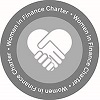
What the investment management industry is doing to embed greater gender diversity
While I am encouraged that we have seen progress, there is no doubt that there is still more to do to improve gender diversity in the investment management industry. As is the case in many industries, there are still too few women on our boards, executive teams and in senior roles. Our member firms recognise that missing out on more diverse talent means our industry cannot reach its full potential, as reflected by the regulators in their recently published joint Discussion Paper. This is also critical for closing the gender pay gap, as a significant driver of its existence is the greater number of men than women in senior and high-earning roles.
Proactive steps continue to be taken by the industry to respond to this, supported by important industry-wide initiatives such as the Women in Finance Charter which has sought to build greater gender diversity since its inception in 2016.
Both as a trade body and as an employer, the Investment Association (IA) is committed to driving this agenda forward (as well as greater diversity and inclusion (D&I) in all its forms), championing and facilitating change within the industry through the sharing of good practice and our convening power. An example of this includes the publication of our Addressing the Gender Pay Gap report in 2020, which showcased how our member firms are taking action to tackle the root causes of gender inequality.
These practical interventions have been grouped into three specific areas of focus through the IA’s Talent Strategy: attraction and recruitment; retention and advancement; and measuring and monitoring.
Attracting and recruiting women into the industry continues to be a crucial step towards addressing the gender disparity and the gender pay gap within investment management. Recognising that, in order to do so, the wider public must first be aware of the industry, members have looked to awareness events and partnerships to promote the industry’s value and purpose.
Investment 20/20, the IA’s talent solution, plays a pivotal role. It has helped more than 2,000 young aspiring professionals start their career in investment management. Focused on creating a more diverse and inclusive investment industry, 40% of Investment 20/20’s trainees are women, and 43% are from ethnic minority backgrounds.
Whilst recruitment efforts have largely been targeted at bringing women in at entry level – widening industry access to a more diverse pool of talent by providing supported routes in – firms are aware of the need to focus on recruitment at senior levels too. For example, bringing in individuals from other industries at later stages of their careers. Measures to mitigate bias at the recruitment stage have played an important role and continue to do so.
Attraction and recruitment must also be supported by a structure to retain women who are new to the industry, as well as those already building their careers within investment management. Many interventions act as mechanisms both to attract more women in and as incentives to retain them. A particular focus has been on programmes and policies which seek to empower individuals to have more control over their working arrangements, particularly as we shape the future workplace.
Crucially, an accurate picture of a firm’s current position and a clear idea of where it wants to be provides a basis on which firms can build their diversity strategies efficiently and effectively, ensuring measures are targeted in the appropriate areas. Having diversity data is crucial here, as explored in the IA’s Diversity Data Guide, produced in partnership with PwC.
Investment managers have an important stewardship role to play too, working with FTSE companies to improve their gender balance on boards and executive roles. We have worked closely with the Hampton-Alexander Review who have been pivotal in driving up the number of women on boards in the UK's largest companies. Since the publication of the Review’s targets, the number of women on FTSE 250 boards has increased from 682 to 1026, while the number of FTSE 350 boards with at least 33% of women has increased from 54 in 2015 to 220 in 2021.
It is important to recognise that without an inclusive culture, the impact of these practical interventions and the benefits of having a diverse workforce will not be realised. Investing in cultivating an inclusive and psychologically safe culture continues therefore to be fundamental.
Businesses with healthy cultures create an environment where people want to work, feel challenged, are able to use their talents, and are valued. Our member firms recognise that this is crucial for the industry’s health and sustainability and, accordingly, that building greater D&I, in all senses, is a business imperative.
(This article first appeared in Citywire's Wealth Manager Issue 559 - Citywire on 16 September 2021.)






